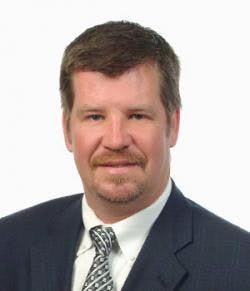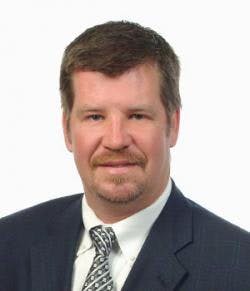How to plan for manufacturing success (hint: hire gamers)
Scott Hover, a product line leader with GE Measurement & Control, got his start 26 years ago in nuclear power generation. He’s now applying his decades of knowledge of the power-gen space in helping GE analyze the ways in which smart tech is helping transform the market. Hover recently spoke with Plant Services about ways to be more strategic in everything from asset management to workforce management.
PS: Condition monitoring tech so far seems to have been used most widely for turbines and other large assets. Are you seeing manufacturers begin to deploy it more often elsewhere along the production line?
SH: It really comes down to the manufacturer and the engineering expertise of that OEM hardware equipment. Where it comes into play, especially in the advancements of materials and everything over the last 10-15 years, is translating where they can get more life out of things into software modules or software algorithms, if you will, going into control systems to increase the life of those things.PS: In terms of smart systems, what are one or two ways in which reliability teams can use smart systems to better manage their assets?
SH: I think it’s making sure they have those algorithms to do some better predicting or analysis of what is going on with (asset) trends. As they build that intelligence into the processing capability, it becomes much easier for OEMs to provide guidance to customers on that. We can provide that capability through monitoring and diagnostics of building out that algorithm suite to let our customers know, “Hey, you should be looking at this; you should be looking at that.” Many industrial organizations are taking advantage of cloud processing and storage capabilities, but the key comes down to the knowledge base.
PS: Do you think that plant teams should be seeking out people with a specific skill set area? Or do you think there’ll be a critical tipping point where OEMs will need to get into this analytic service after-market in order to survive?
SH: I think it’s a combination; it’s a little bit of both. The OEMs have to get very good at doing it. But you have to mind that generational gap because in a lot of areas, you’ll see a 10- to 15-year gap. I’m sure a lot of organizations are worried about that, but getting to (someone with) the engineering or computer science background who’s comfortable with the computer technologies, the Web-based technologies as well as candidates that have a mechanical aptitude is important, because that mechanical aptitude can’t be taught as clearly in academia as it can from experience. Leveraging that younger workforce and that candidate pool that have an interest in understanding how something works beyond just looking at a computer screen becomes key for transferring that knowledge base from the mature workforce.
There are some things that are done in power gen and industrial applications that these guys just know. For instance, if these guys know something’s going on with this water heater out there, and they hear this knock but they don’t really have an alarm to tell them what it is but they’ve been around a plant for 20 or 30 years, that becomes a key component for knowledge transfer to address that gap, in my opinion. Some of that information is just not going to be learned from a textbook – you have to have knowledge transfer plans and programs to do that with a computer-savvy workforce.
PS: Beyond IT, what aptitudes should plants look for from students coming out of university that plants can then augment on the job?
SH: Yeah, if it’s not strictly IT, it’s also engineering. A good thing to ask them coming out is – it may sound kind of cliché – are they gamers? (Gamers) are used to new and evolving capabilities from an ergonomics perspective and abilities with joysticks and stuff like that. Controls and things are going to evolve over the next five to 15 years into an enhanced experience that, quite frankly, some of the more mature workforce—they finally got comfortable working with a mouse and a flat screen—they’re going to be applying from an ergonomics perspective. A lot of people with the military service perspective actually go into these industrial applications with their training and background. That bend of operating things differently and using computers differently will definitely be an advantage to evaluate.

